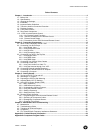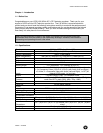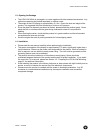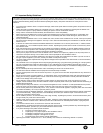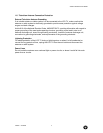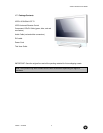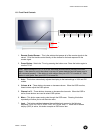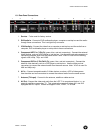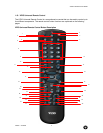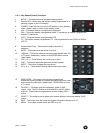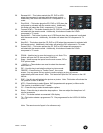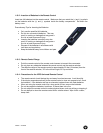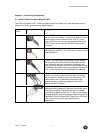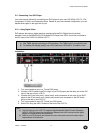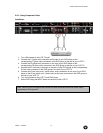
VIZIO L30 WGUe User Guide
Version - 4/7/2005
2
Chapter 1 - Introduction
1.1 - Before Use
Congratulations on your VIZIO L30 WGUe 30” LCD Television purchase. Thank you for your
support of VIZIO and its LCD Television product line. The L30 WGUe is a precise electronic
product and you should read the following instructions carefully to maximize the performance of
the product. It has passed regulatory safety certifications and you can be assured of the highest
quality display with the utmost reliability. After you have finished reading the instructions, put
them away in a safe place for future reference.
1.2 - Specifications
Panel 30” Color TFT Active Matrix LCD
Resolution 1280 x 768 pixels (15:9 Aspect Ratio)
Display Compatibility HDTV (720p) Native
Signal Compatibility 480i (SDTV), 480p (EDTV), 720p (HDTV), 1080i (HDTV)
Response Time 16 ms
Brightness 500 nits typical
Contrast 600:1
Viewing Angle 170° (horizontal), 170° (vertical) for CR>10
Inputs
1 x Service Port, 1 x DVI-D with audio in, 1 x RGB D-Sub 15-pin with audio
in, 2 x Component Video (Y/Pb/Pr & Y/Cb/Cr) with Audio (Left and Right), 1
x S-Video, 2 x Composite Video with Audio (Left and Right), 1 x RF (for
internal NTSC tuner), 1 x mini-jack
Output 1 x Audio (Right + Left), 1 x Composite Video
Features
SRS Surround, Two-tuner PIP, 3:2 pull down, noise reduction 3D digital
comb filter HDTV ready (480i, 480p, 720p, 1080i)
Speakers Built-in 2 x 5 W
Lamp Life 50,000 hours (typical)
Power
Input IEC Connector for direct power line connection
Voltage Range 90– 264 VAC at 50/60 Hz
Power Consumption 170 W
Environment Conditions
Operating Temperature: 5~35°C, Relative Humidity: 10~90%, Altitude: 0~10,000 ft.
Non-Operating Temperature: -20~50°C, Relative Humidity: 10~90%, Altitude: 0~40,000 ft.
Dimensions
23.7” (H) x 29.1” (W) x 7.8” (D) w/stand, 20.6” (H) x 29.1” (W) x 4” (D) w/o
stand
Net Weight 42.1 lbs w/stand, 31.1” w/o stand
Certifications UL, C-UL, FCC Class B
Note: In some countries or regions, the shape of the power plug and power outlet may
sometimes differ from that shown in the explanatory drawings. However, the method of
connecting and operating the unit is the same.




